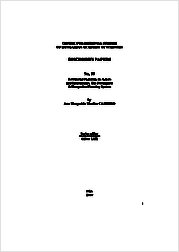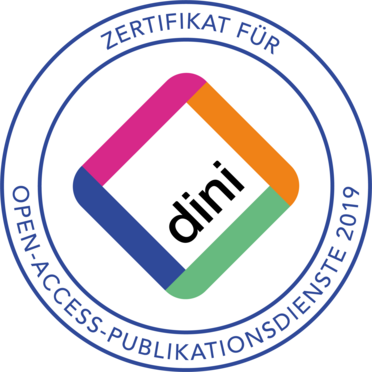| dc.contributor.author | Cardoso, Ana Margarida Martins | |
| dc.date.accessioned | 2010-10-28T05:44:52Z | |
| dc.date.accessioned | 2010-11-22T15:24:54Z | |
| dc.date.available | 2010-10-28T05:44:52Z | |
| dc.date.available | 2010-11-22T15:24:54Z | |
| dc.date.issued | 2009 | |
| dc.identifier.citation | Discussion Papers / Centre for Regional Studies of Hungarian Academy of Science; 77 | |
| dc.identifier.isbn | 978-963-989923-0 | |
| dc.identifier.uri | http://hdl.handle.net/11858/00-1735-0000-0001-334F-2 | |
| dc.description.abstract | Territory as we know it is in constant change; distances shorten, new synergies are established, and new challenges make mankind search for answers and ways to develop in a sustainable and environment-friendly way. New contacts with people having different experiences are important because they give the opportunity to learn from others. The European Union is a great example of what is described above. Borders are open, people can freely move within the Schengen Area, territorial harmonisation is an objective of this community in order to provide better living conditions for all citizens, strengthen the economy and equilibrate disparities among regions in each country and all European members. The present study is a result of a European programme called Leonardo da Vinci, which offers work experience for post-graduates. In this case the synergy is between Letters Faculty of Lisbon University and Centre for Regional Studies of the Hungarian Academy of Sciences (Transdanubian Research Institute). The objective of the report is to provide a comparative work on the Portuguese and Hungarian territorial planning system. It is divided into three parts: first, the explanation and comprehension of the Portuguese territorial management system, its instruments and institutions are presented, which is followed by the discussion of the same issues for the Hungarian territory we identify instruments and institutions responsible for territorial organisation in connection with planning; and finally, a comparison of the two systems is given. | |
| dc.format.extent | 48 S. | |
| dc.format.mimetype | application/pdf | |
| dc.language.iso | eng | |
| dc.publisher | RKK, Pécs | |
| dc.rights.uri | http://e-docs.geo-leo.de/rights | |
| dc.subject.ddc | 910 | |
| dc.subject.ddc | 914 | |
| dc.subject.gok | QGF 100 | |
| dc.title | Territorial planning, its actors and instruments. The Portuguese & Hungarian Planning System | |
| dc.type | article | |
| dc.subject.gokverbal | Ungarn {Geographie} | |
| dc.identifier.doi | 10.23689/fidgeo-699 | |
| dc.identifier.ppn | 619488107 | |
| dc.type.version | publishedVersion | |
| dc.relation.volume | Discussion Papers / Centre for Regional Studies of Hungarian Academy of Science; 77 | |
| dc.relation.collection | Geographie | |
| dc.description.type | report | |


